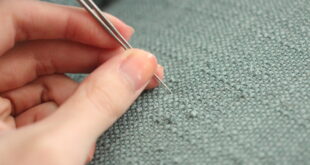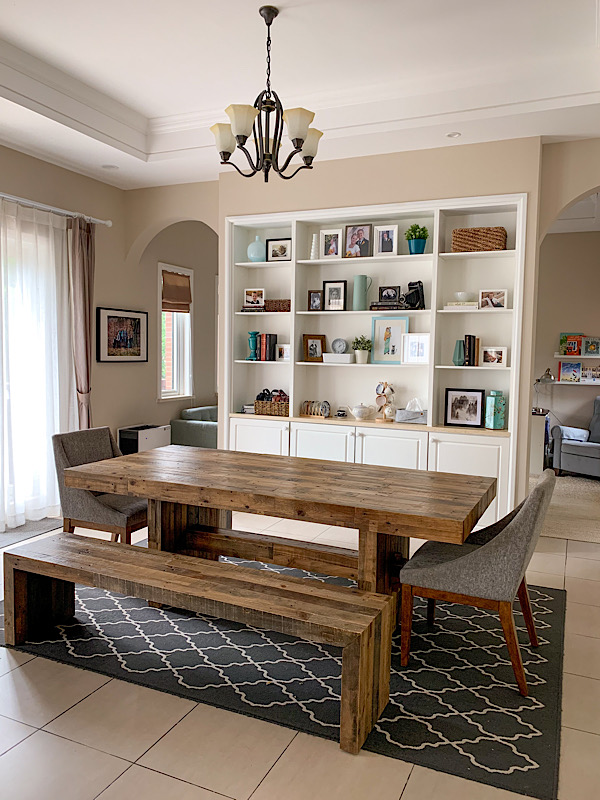
Jo and her family started out in Boise, Idaho, lived in London and New York and now find themselves in an expat community in Shanghai, China. Her husband’s work has given them the opportunity to travel, but being on the other side of the world from their friends and family during a pandemic has been tricky. Happily, Jo and her community have drawn close together and are weathering the storm, just like so many of us. Her home is a rental, and she’s done a wonderful job making it feel homey and full of charm. Welcome, Jo!
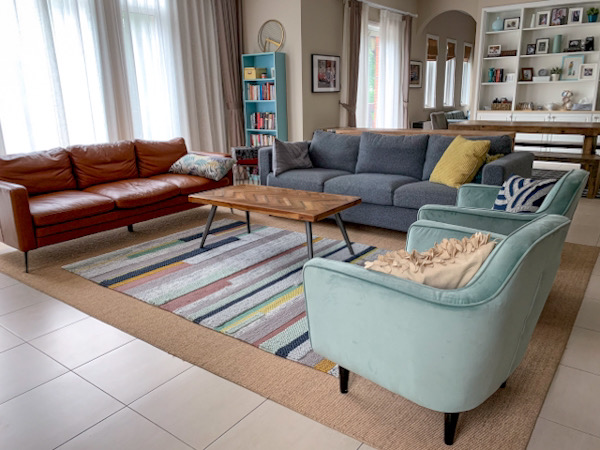
We call our house “the Brown House” which is of course, completely unoriginal and only somewhat descriptive, but that’s what you get from three-year olds. When we moved to Shanghai our youngest daughter, who was born in London, lived three years in NYC and now found herself in China, was struggling to identify home. Our Tudor house in Queens had red brick, so she had called that house the Red House, and our Tudor in Shanghai has the classic brown wooden beams, so “Brown House” it is.
I met Richard the summer of 2002 in Boise, Idaho where we both worked at a waterpark in between years of university. We were married one year later, and had our first child one year after that. We were both long-term Idahoans, and we both graduated from Idaho State University, him with a degree in accounting, me in dental hygiene. We have five children; Cameron is 15, Eli is 13, Miriam is 10, Simon is 9 and Amirah is 4.
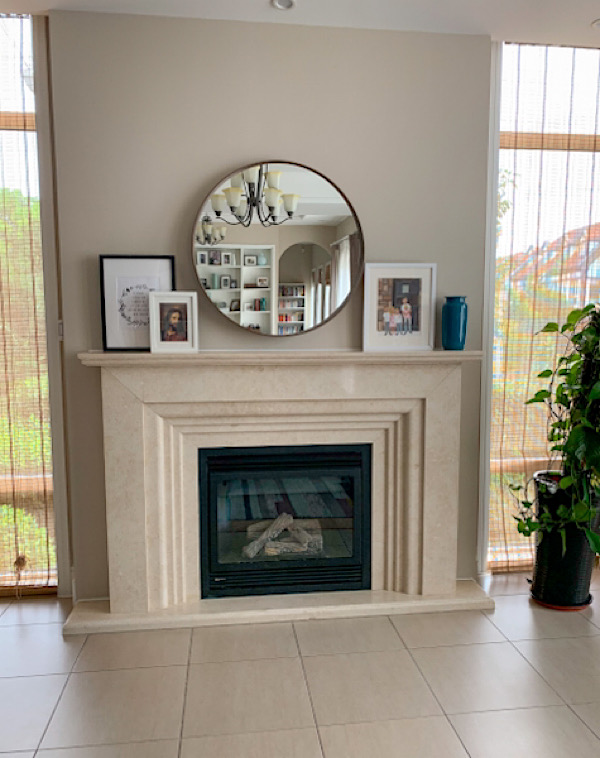
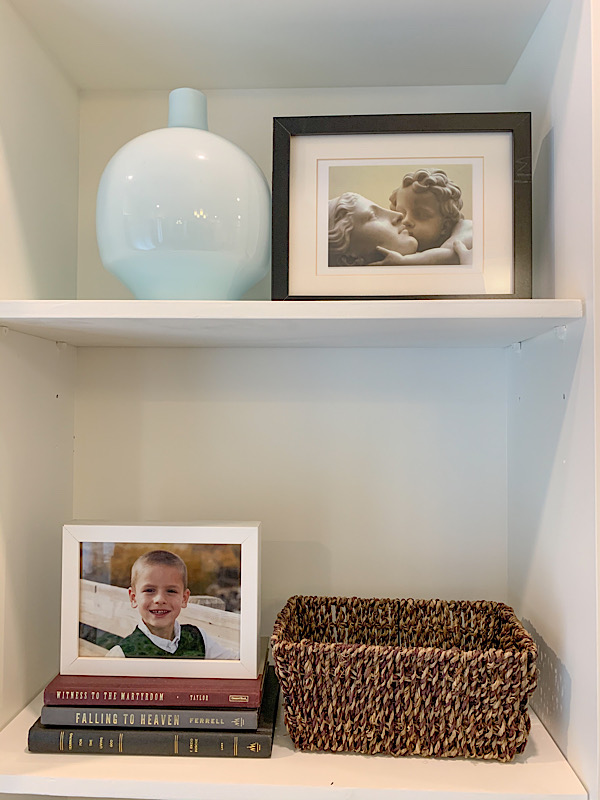
Richard was born in Idaho and I was born in Utah, but we both lived most of our childhood in Boise. My freshman year of high school my family lived in Fairfax, Virginia while my dad worked in D.C., and that year changed me in ways that influenced the course of my life. I had a taste of life outside of Boise and it left me wanting more. So it was somewhat unexpected when in 2013, Richard and I found ourselves living in the Boise suburbs, in a small home with four young kids.
Richard comes from a long line of Idahoans and accountants and he too was itching for something different. When the opportunity came along to move to London with his accounting firm, I don’t think either of us ever considered turning it down.
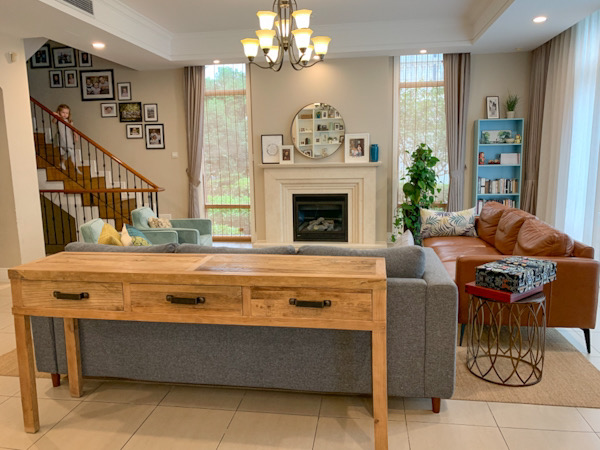
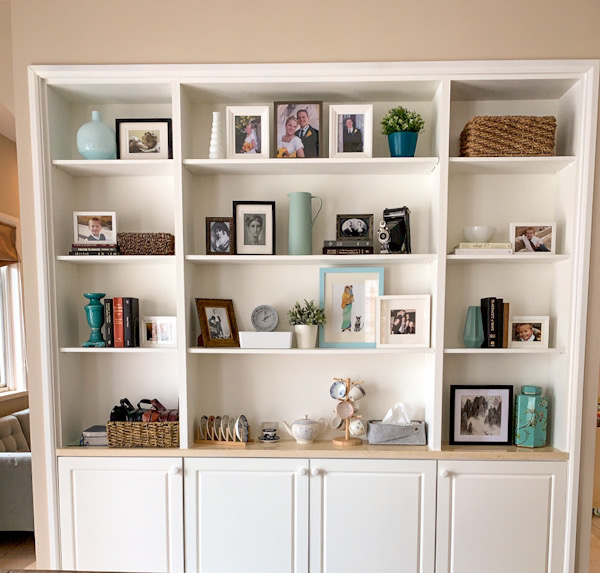
My mother-in-law often jokes that marriage is a crap-shoot, especially in the LDS community where couples often date for very short periods of time. I felt like I knew Richard before we got married, but 17 years is a long time and I’ve seen him evolve in many ways. He is professionally successful, though he isn’t always enamored with his work life. He is a thoughtful person, and with each new city we’ve moved to he has allowed new experiences and people to shift his world-view. He is an earnest father, introspective about his shortcomings and committed to showing up in better ways for our kids.
Cameron fits a lot of stereotypes of oldest children. He is driven and responsible. But he’s also a teenager and brings those delightful traits to the family dynamic, like eye rolling and condescension. His true love has always been sports, but high school and current events have sparked an interest for him in history and politics. He’s bright and earnest. He has a sensitive conscience, and I’ve had to learn not to exploit that by using shame to get the remorse or behavior change I want. Cam is affectionate and his sense for when I need a hug, and his eagerness to give me one, are those parenting gems we often don’t feel like we deserve.
Eli is our HSP. (Highly sensitive person.) He is empathetic and in-tune. And although he is easily distracted and terribly forgetful, when he is tuned in- he’s all in. He can reach our 4 year old better than any of us. When I ask him to help Amirah with something or keep an eye on her, he is 100% present, taking her seriously and fulling engaging on her level. He is cerebral and deliberate. He loves video games and fantasy novels. He is introverted and thoughtful and kind. He plays the piano, does pencil sketches of anime characters, and loves living in Asia and learning Chinese.
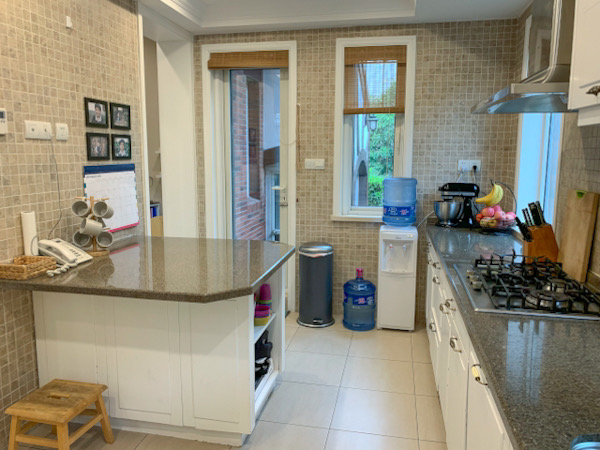
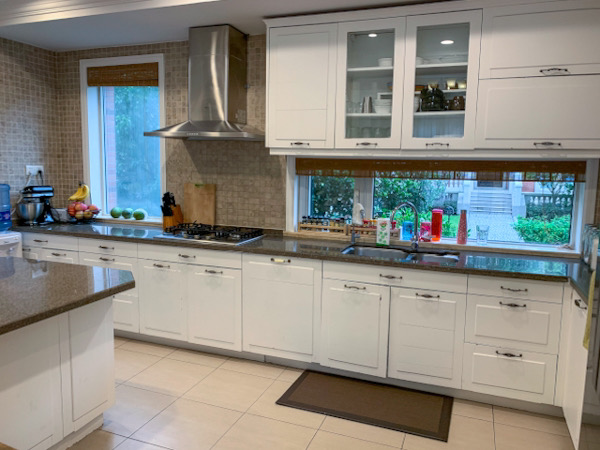
Miriam is the answer to any conviction I ever expressed about wanting strong daughters. She is stubborn and proud and calls me out. She is a voracious reader and the source of great “read it before I said it” laughs when she pronounces words like prologue (prollog) and heroine (he-royn) phonetically. She is social and imaginative. She loves and misses her cousins in the U.S.. She has a big heart and eagerly embraces feminist ideas I toss her way. When she was little she had trouble pronouncing her name so she came up with a nickname for herself, and we still call her Mim. Sometimes at night when she can’t sleep, she braids the rainbow strands of the macrame on the wall in her room.
Simon was the youngest child for five years and he might still be bitter that role was stolen from him. He hates to be alone, and he loves to play with anyone and everyone. He is charming and sweet and persistent. Simon loves “cubing” (solving Rubik’s and other cubes) and sports. When we lived in London and Simon was 3-4 years old we rode public transportation everywhere and Simon was always chatting with people on the bus. He developed the most adorable British accent that unfortunately faded within a few months of returning to the U.S. He has rusty colored brown hair and freckles and he will always laugh at your jokes.
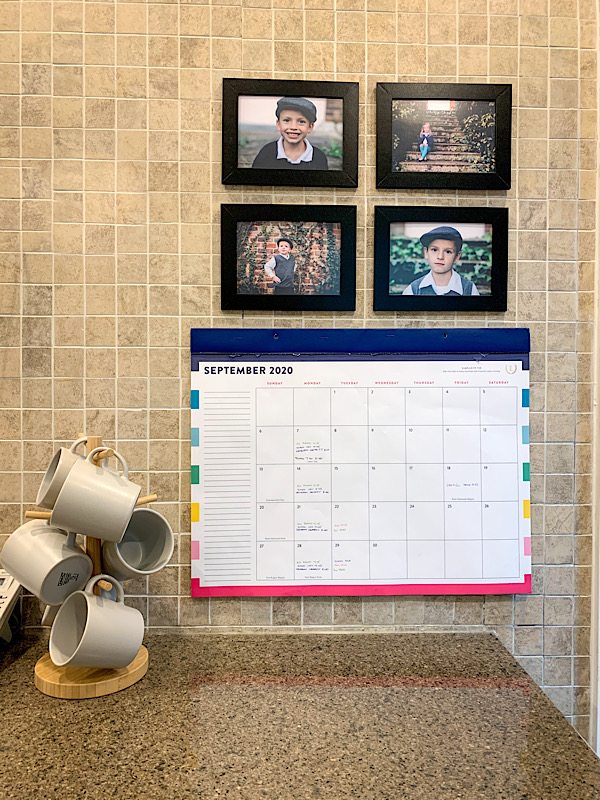
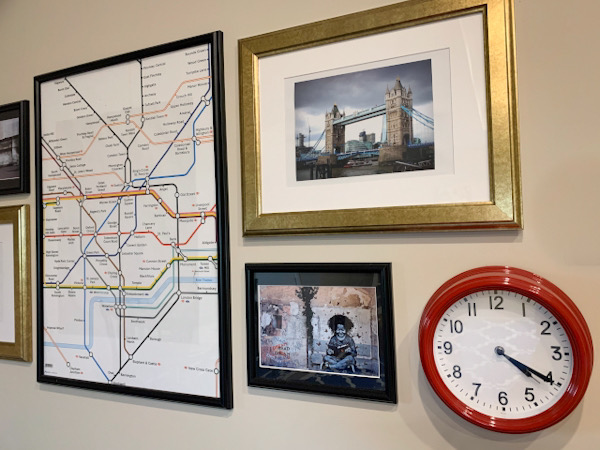
Amirah is coy and reserved. She too is stubborn and willful and unavoidably entitled from being the “baby girl.” She was born in London while we had access to universal health care and we joked that she was our “Buy four get one free” baby. Amirah thrives in routine and I’ve never seen someone so destroyed by jet lag. In January we had recently returned from a holiday trip to the states, and when foreigners were all fleeing Shanghai my first thought was “I can’t do that again.” It had taken a solid two weeks for Amirah to recover from the jet lag and I couldn’t imagine putting her through that again so soon. Despite being shy, she loves going to school and being around other kids and adults. She loves to be loved. And she will reward you for loving her with her attention and affection.
Our home is in a gated neighborhood in an area of Shanghai called Jinqiao. (Pronounced jin-chow.) Jinqiao is an expatriate bubble, meaning it is made up of similar neighborhoods where foreign families live in homes called “villas.” We live in Pudong, on the east side of Shanghai. Our neighborhood is lush and green, with quiet streets where our kids ride bikes. On our street are families from Brazil, Philippines, Singapore, Israel and China. In the neighborhood I know families from all around Europe, Asia and North and South America.
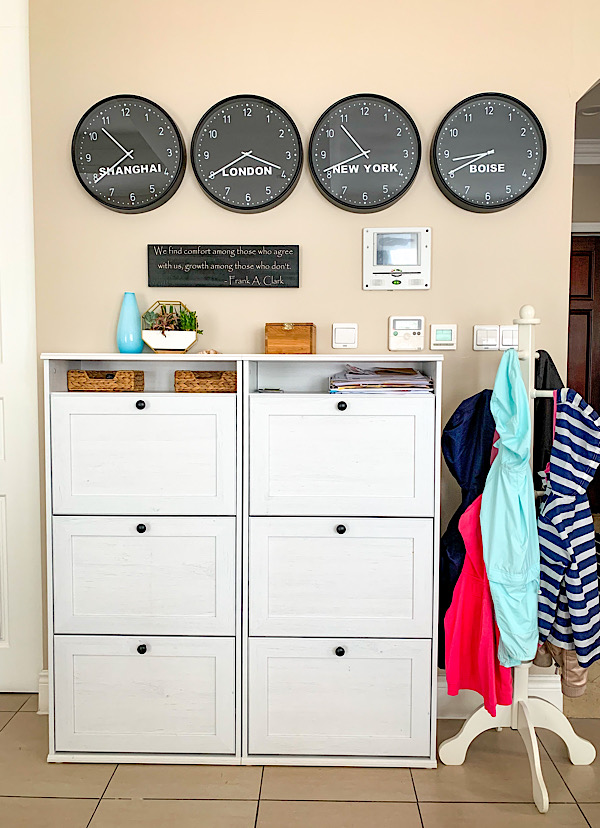
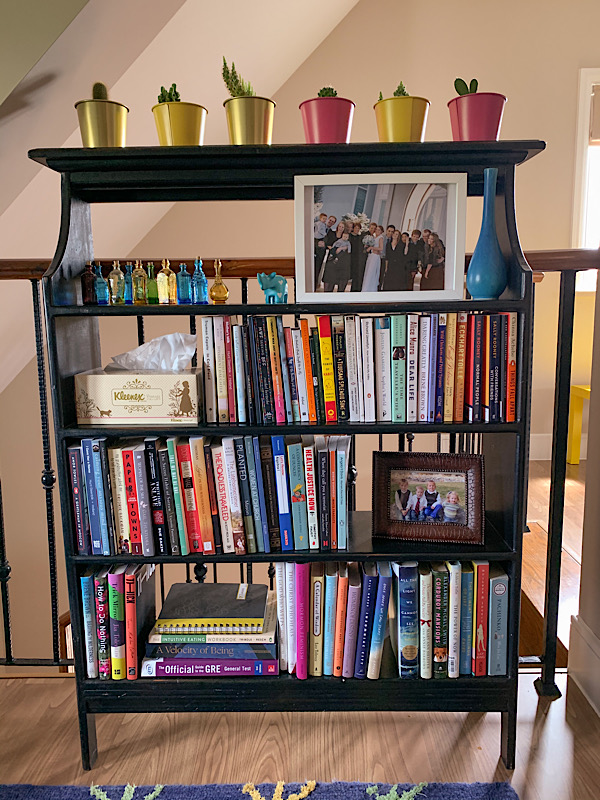
It’s not easy to convince employees, especially those with families, to move to China, and the expat packages provided by companies are generous. Expat families that come to Shanghai with executive employees can expect a housing allowance of 60,000-80,000rmb/month. This is around 10,000usd/month for rent. Our home is much more than we need, and this often makes me deeply uncomfortable.
We moved to Shanghai from Queens, and before that we lived in a borough of London that was solidly middle-class. Our neighborhood here elevated us to an echelon of society that is new to me and in conflict with my socialist ideals. I never dreamed of putting my kids in private school, but that is the only option here. (Foreign children are not allowed in Chinese public schools, and my kids don’t speak Mandarin.) In Queens and London our kids went to public school, with vast socio-economic diversity. I love the cultural diversity of our neighborhood, but the economic demographic has been a shock to my system. I often find myself in the midst of conversations about designer handbags, personal trainers, exotic vacations and fad diets. Time and money are in abundance, and although individually each of my friends and neighbors are smart, kind people, the culture of my community is disorienting for me.
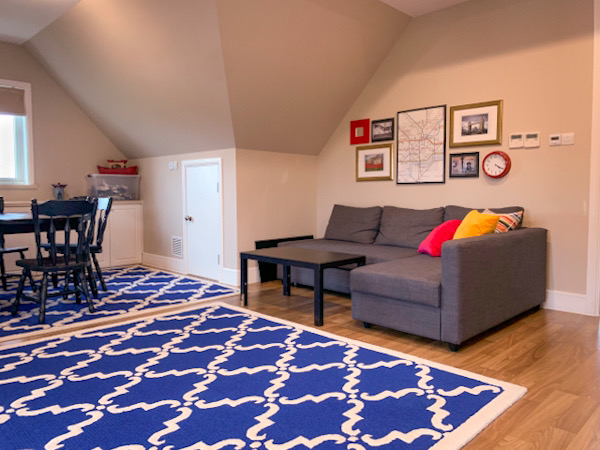
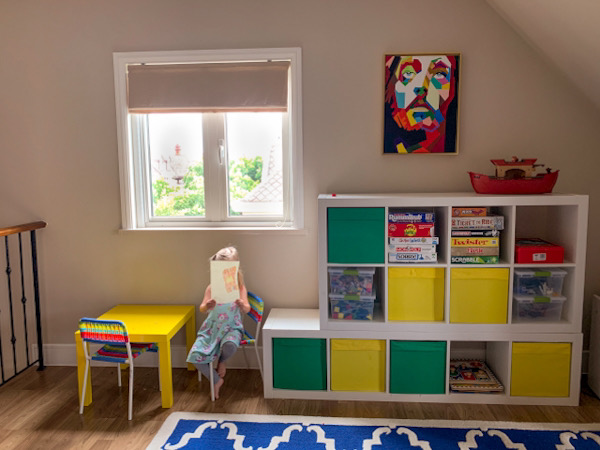
It is common for foreign families to hire domestic help. “Ayi” is the Chinese word for Auntie and Ling has been invaluable for us. She helps with childcare and housework, but she also helps me make appointments, answer phone calls in Mandarin, and do a million small things that are really stressful in another country in a foreign language. Within a few weeks of moving into our neighborhood I found myself the object of ire in a neighborhood group chat. Men and women were trying to institute a salary cap for ayis, suggesting that if everyone agreed not to pay more than a certain amount then the ayis wouldn’t “demand” more than they “deserve.” I expressed the very unpopular opinion that this was unethical at best. I felt angry, but I also felt very lonely.
Our neighborhood is comfortable. It’s not walkable in the sense of getting places (which is what I miss the most about our life in NYC), but it’s very walkable for recreational purposes. I love walking with Amirah while she pedals her little bike or rides her scooter. Close by are restaurants, shops and hair salons that cater to foreigners, but also all the hallmarks of Shanghai life like wet markets, street food and fancy shopping malls.
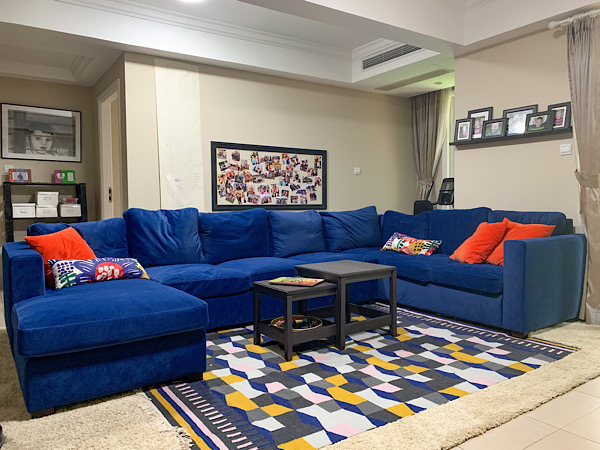
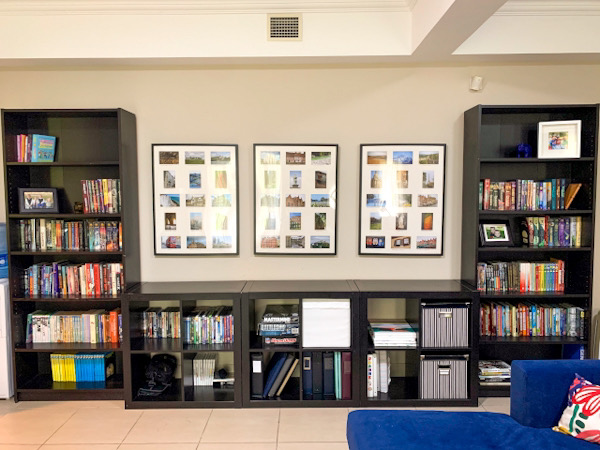
We took a “look-see” trip to Shanghai in February of 2019, five months before our move. We were shown villa homes in a few neighborhoods in Jinqiao, and a few neighborhoods in other parts of Pudong. I was severely jet-lagged during our house hunting excursions, running on adrenaline and feeling totally overwhelmed. Richard and I had spoken quite a bit with the guy who he was replacing, and his wife, and were the most familiar with the neighborhood where they lived. Once I saw the Tudor houses I was sold. It reminded me of our home in Queens and as we drove around I saw bikes and kids and families and it felt right.
There are only three floor plans and four exterior designs in the neighborhood, so we just chose our favorite exterior (the Tudor) and our favorite floor plan and they promised to reserve a house for us. Before we flew back to the U.S. they told us there was a house they could hold and we were able to see it before we left.
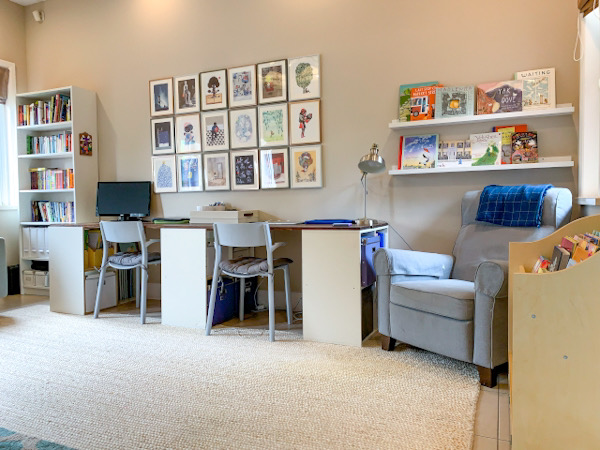
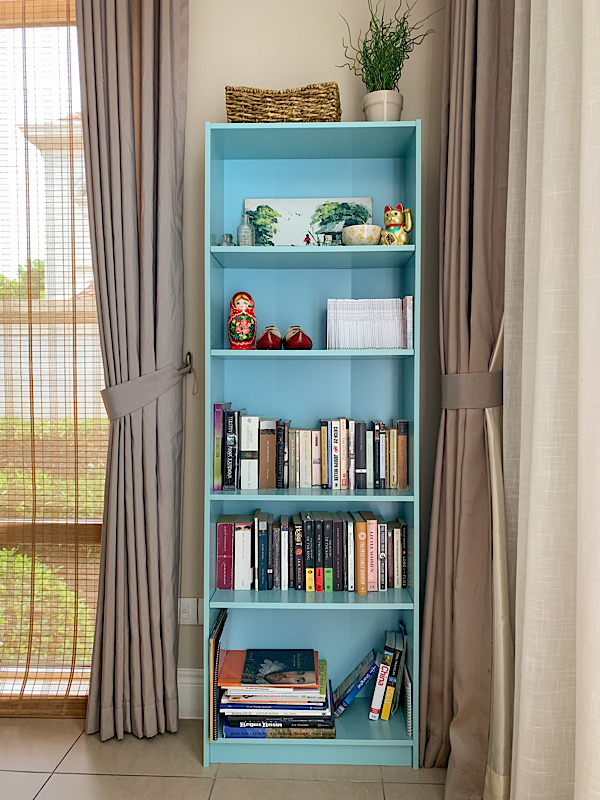
It has been my observation that construction in China is done with priority on the short-term rather than the long term. Buildings and homes go up very quickly, as demonstrated during the pandemic when the Chinese government built two hospitals in about 10 days. Sometimes this results in less than ideal handiwork though, and even though our home was built in 2012 it needs periodic repairs. They are also willing to do frequent (and fast) renovations in-between tenants so when we moved in everything felt clean and new. This was a nice change for us after living in homes in London and NYC that were 80+ years old.
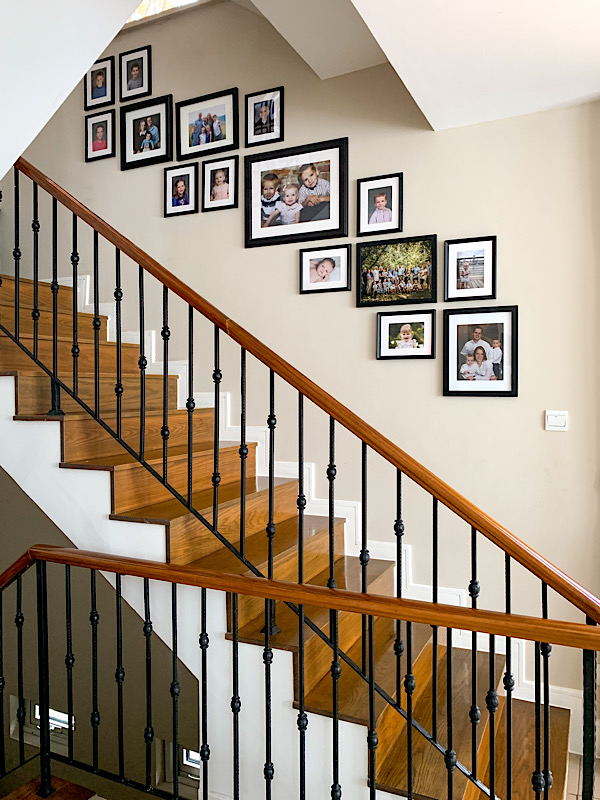
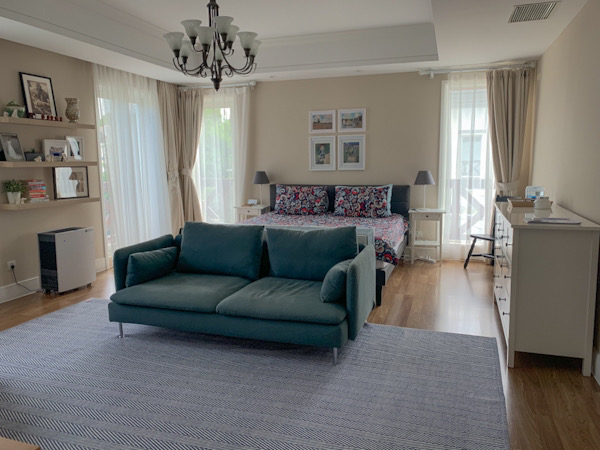
I’ve spent years in therapy off and on, and have learned and worked hard to develop acceptance. I’ve learned that to accept something doesn’t mean to condone it, but it means that I can acknowledge what I can’t change. I think this is my Mom superpower. Every parent has an idea of what they want their children to be. I feel grateful that I’ve learned how to accept who my kids are. I don’t need my kids to be good athletes, or outstanding academics, and I know they aren’t even going to always be kind. But I can accept them as they are, empower them through their mistakes, and resist the urge to make my approval or love conditional.
Empathy comes naturally for me, and I think emotional intelligence is where I really have something to offer my kids. I am no good at creative endeavors like Halloween costumes and birthday parties. I’m mediocre at organization and extracurriculars. But when my kids need to work through conflict with friends, or feel lonely or anxious, that’s when I feel like I can meet their needs.
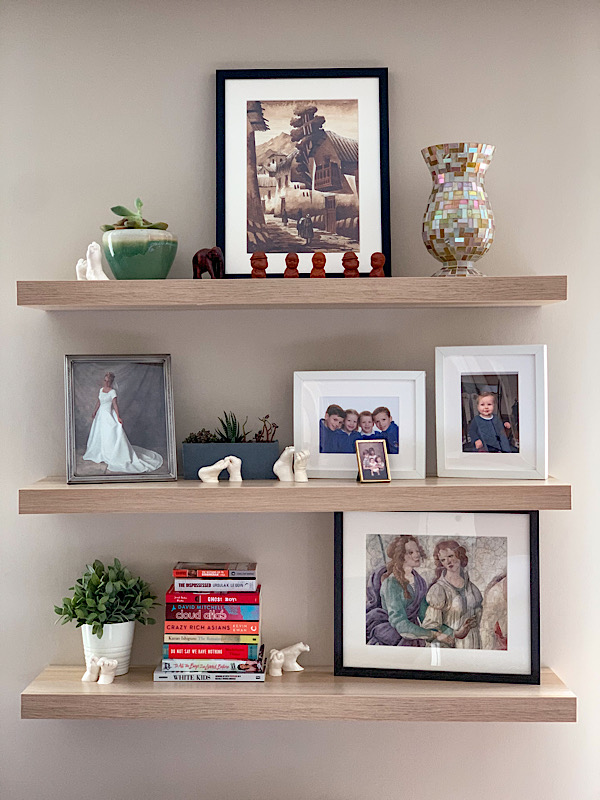
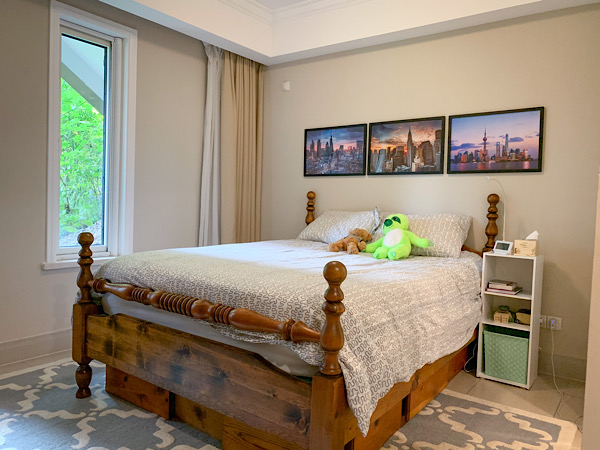
At the end of January when the virus was taking hold in China, most of the expats left. Our neighborhood, our community, our friends were gone in a matter of days. We were on vacation in the Philippines for the Lunar New Year and we returned home to a place where all the people in my kid’s lives one week before, were now gone. Their friends, teachers, coaches, neighbors had all left. A Wall Street Journal article I read said that an estimated 250,000 business professionals (and their families) who left, were still stranded outside China in August.
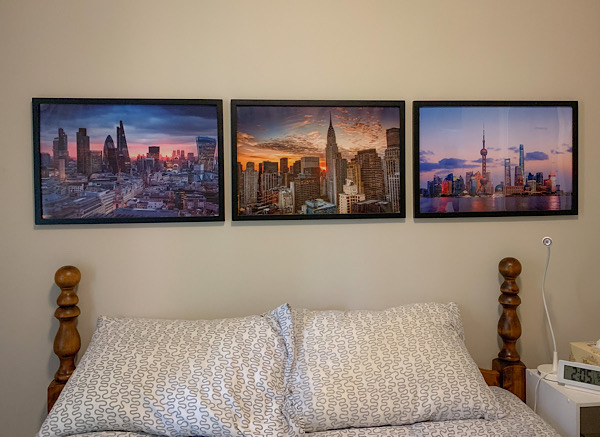
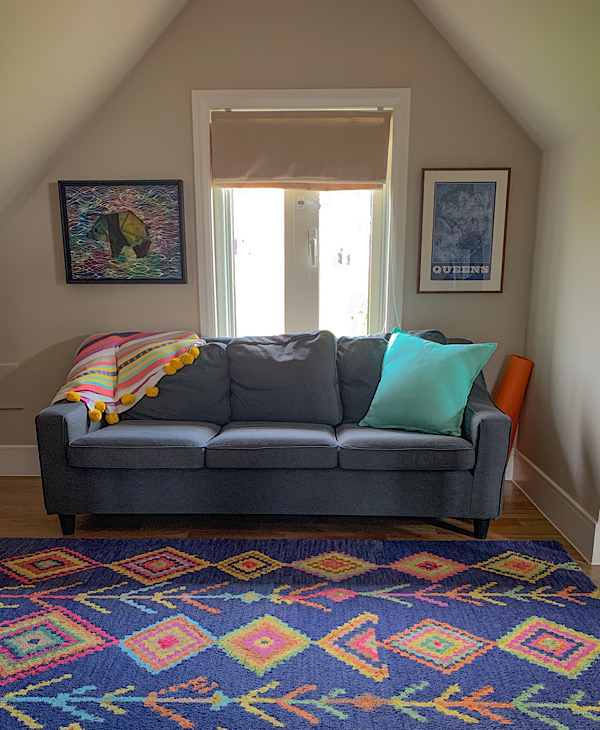
I hope my kids remember this time. In February their world turned upside down again and I hope they remember how we hunkered down in a city of 25 million people, how we all did it together. I hope they remember more than just the baking and the board games and the distance learning. I hope they remember that there is beauty in choosing community, in solidarity, in the collective.
I hope they remember their resilience — three countries in five years, new schools, new friends. I hope they remember that their dad and their mom wanted them to be invested in their new life and new surroundings. I hope they remember our discussions around the dinner table, sometimes way past their bedtime, and how we wanted them to know that we’ve shifted our beliefs so many times we hope they will too. But mostly I hope they remember things, even the conflict and the loneliness and the uncertainty that are part of the human experience.
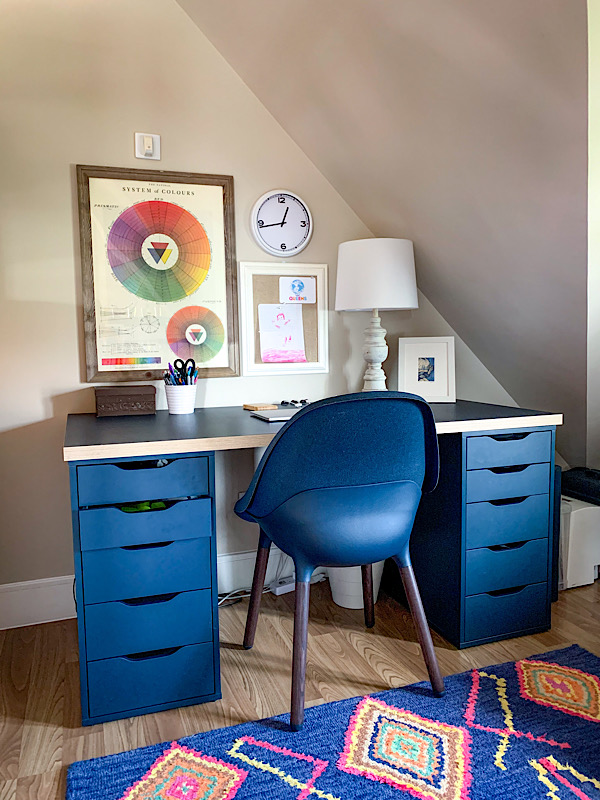
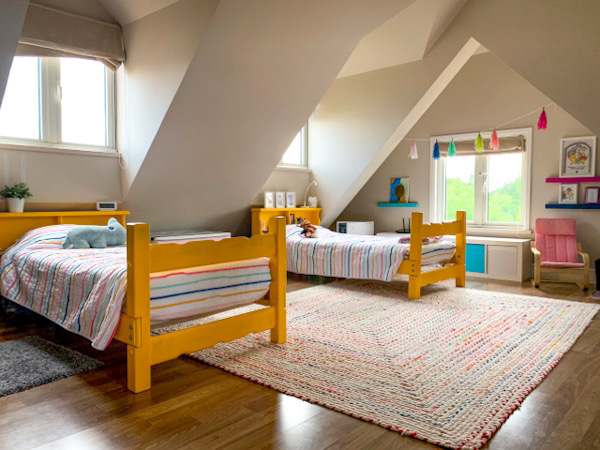
We lived in Shanghai for six months before the virus hit, and we had just found our new normal. We had made new friends and found new routines. For the next six months we lived in a neighborhood and city that were completely different from the one we had moved into, so we made another new normal, fewer friends and simpler routines. Now the virus has been effectively contained in Shanghai, families have returned to our neighborhood and the city, and the kids are back in school. It’s a new normal yet again, and we are adjusting to a post-Covid life like so many others.
We will be living in Shanghai for another three years and I suppose that none will be like this first one. I am excited to make new memories in this home, to adapt and grow and find our places.
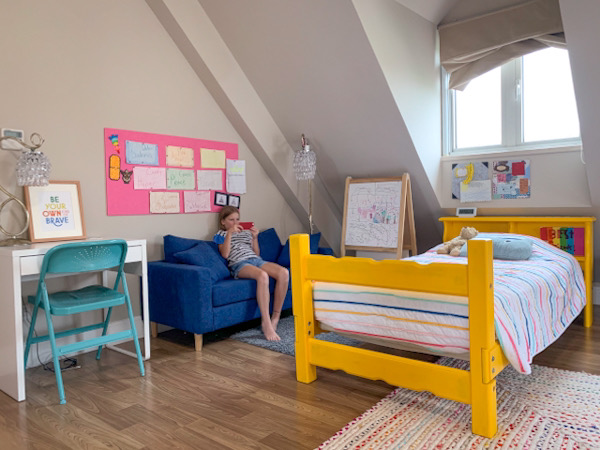
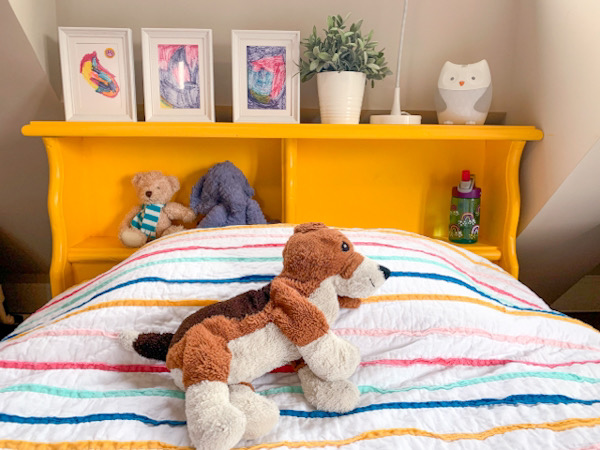
My favorite thing about living with my kids is the way they surprise me; the way I think I know them and then they say something, share an original thought, or express a strong opinion that I didn’t see coming. I also love watching them around each other, watching the ways in which they forget themselves, or the ways in which they try in spite of themselves. It’s so cliché but I love to see them develop into their own people with interests that come from places I can’t identify.
In our big house I miss our proximity. I miss how everyone was always within the sound of your voice in our home in London, and how in NYC we spent most of our time in a shared space. Cameron is 15 so we are in the last few years of our time with him and I already miss the absence of his presence at home. I already miss all of the kids at the ages they are and the ages they have been.
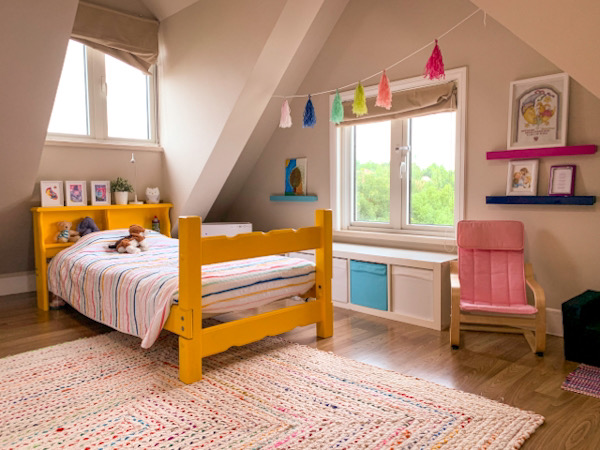
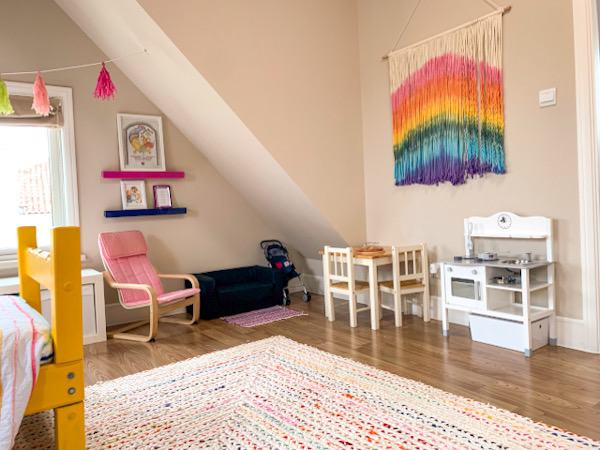
I wish someone had told me that the biggest culture shock I would face in Shanghai wouldn’t be Chinese culture. I wish they had told me that the efforts I was making to be open-minded about this new-to-me country, could also apply to being open minded about wealthy people.
I wish someone had told me it would suit me better to live outside the expat bubble. I wish someone had told me that WeChat would take over my life. I wish someone had told me to give myself a year to adjust. Oh wait. Lots of people told me that!
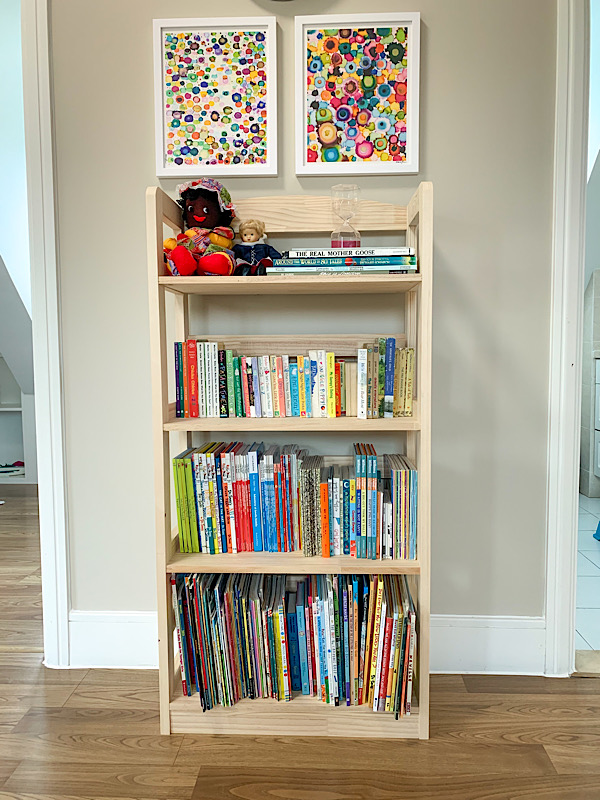
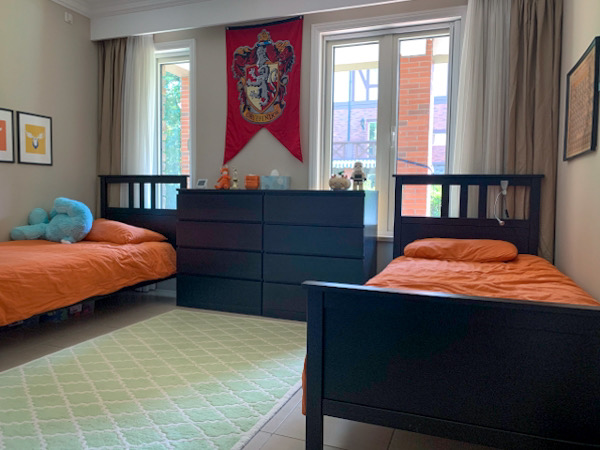
I love our home, and I love making spaces that my family will enjoy. My decorating style is probably best described as sentimental because so much of it is hand-me-downs and art from people who mean a lot to me.
It’s fun for me to observe and copy other people’s design style (I really lack creativity in this area). And despite how much I wish I didn’t, I do care about what my home looks like and the impression it gives to those who see it.
I am grateful for what I can give my children and I recognize my privilege. It’s dumb of me to complain about our space being too big, or living around people with a lot of money. But I can’t help but wrestle with inequity. I recognize that I have my own arbitrary limits about what worldly things are worth spending money on, and I appreciate the chance to confront this hypocrisy in myself.
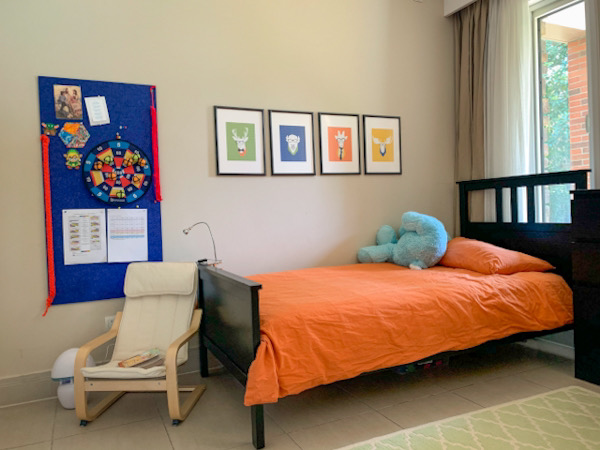
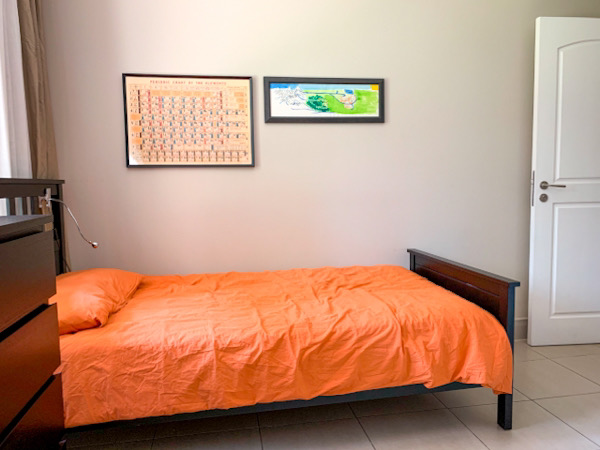
Five kids is a lot of kids, and even though I will miss these years of us all being together as a family unit, I look forward to the spouses and partners and children and friends that my five kids will bring into our family. Right now Cameron begs everyone to play board games because it’s fun with more people, and someday when he’s home for the holidays and Amirah is 15, she will beg Cameron to join in a board game.
In Idaho it wasn’t unusual to encounter big families, but in London, NYC and Shanghai we get lots of comments about how many kids we have. “You sure have your hands full!” people love to say. One of my siblings told me something that a friend of hers says in response to those comments, with only a little snark:
“Full hands, full hearts!”
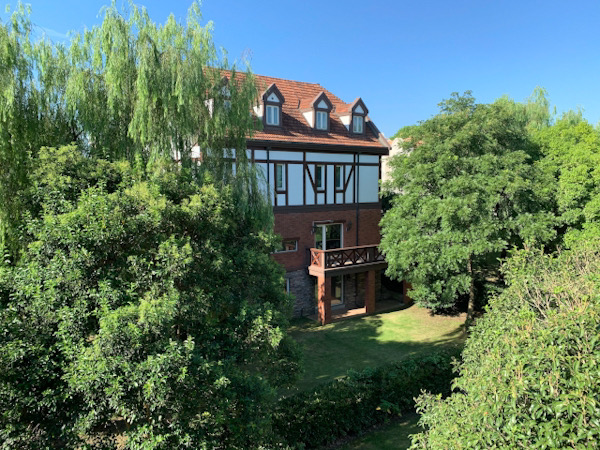
——
Thank you, Jo! I loved getting to look around this space and seeing all the sentimental touches. It can be so hard to make a rental or a temporary home feel loved and lived in, but Jo and her family have certainly managed that. This home away from home feels incredibly warm and welcoming with plenty of room for 5 kids to run around.
I also really appreciate what Jo said about being a good empath for her kids and helping them navigate conflict and contradiction. Lately, a lot of our parenting identity is focused on external things — cute back to school outfits, what we post on IG, etc. But the real work of parenting comes when we have to get down in the dirt with our kids and hash out tough stuff. It’s a scary but incredibly rewarding part of being a parent.
How do you stay emotionally connected with your kids when things are tough? Is it easy for you to be empathetic or is it sometimes hard to remember how big those emotions felt when you were younger?
SOURCES
Colorful Rug & Moroccan Diamond Rug in Office
Kids Book Cart
Pine Dining Table
Print Montage pages from this amazing book
You can follow Jo’s blog here. Living With Kids is edited by Josh Bingham — you can follow him on Instagram.
Would you like to share your home in our Living With Kids series? It’s lots of fun, I promise! (And we are always looking for more diversity in the families we feature here. Single parents, non-traditional parents, families of color, LGBT parents, multi-generational families. Reach out! We’d love to hear your stories!!) Email us at features@designmom.com
